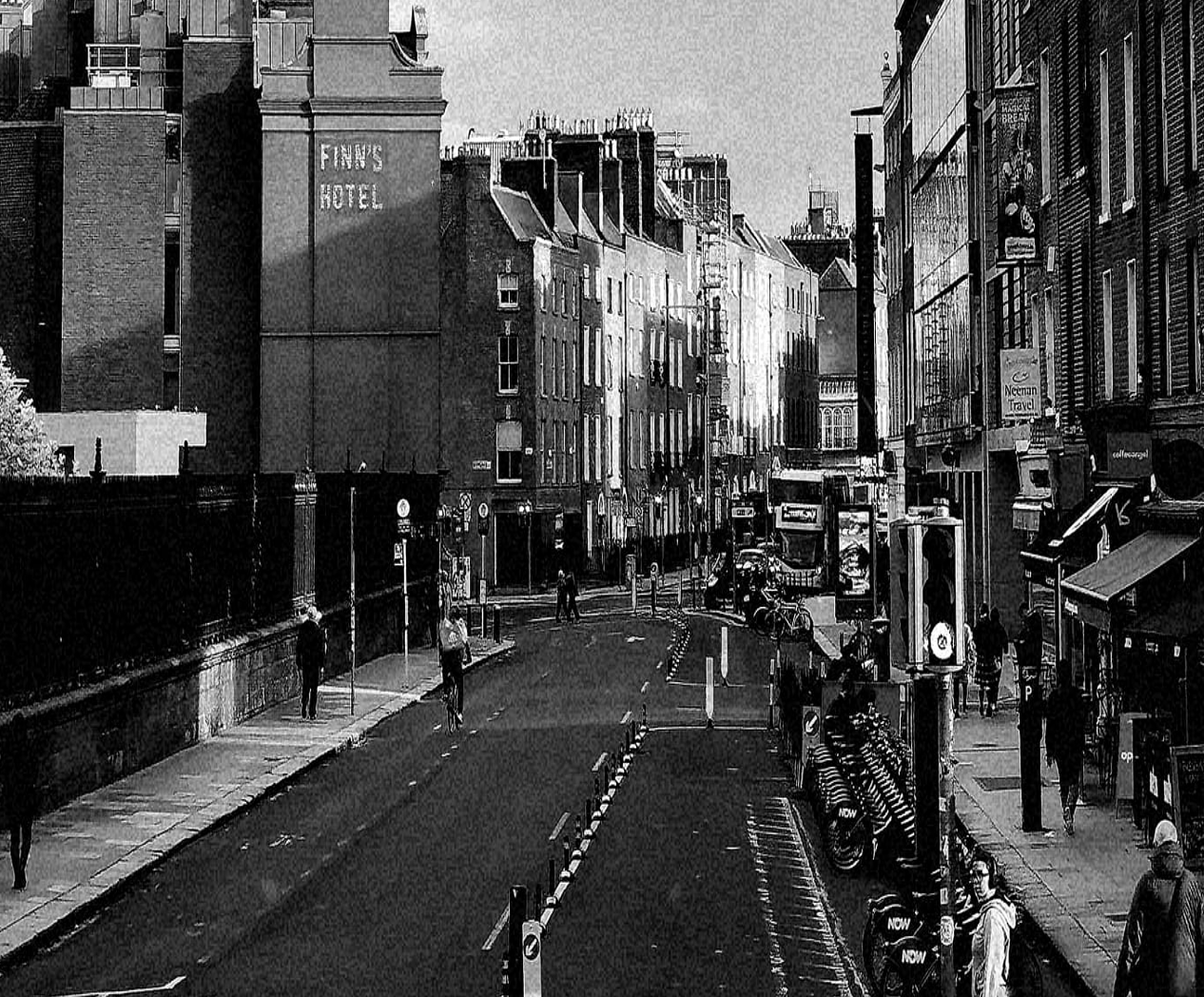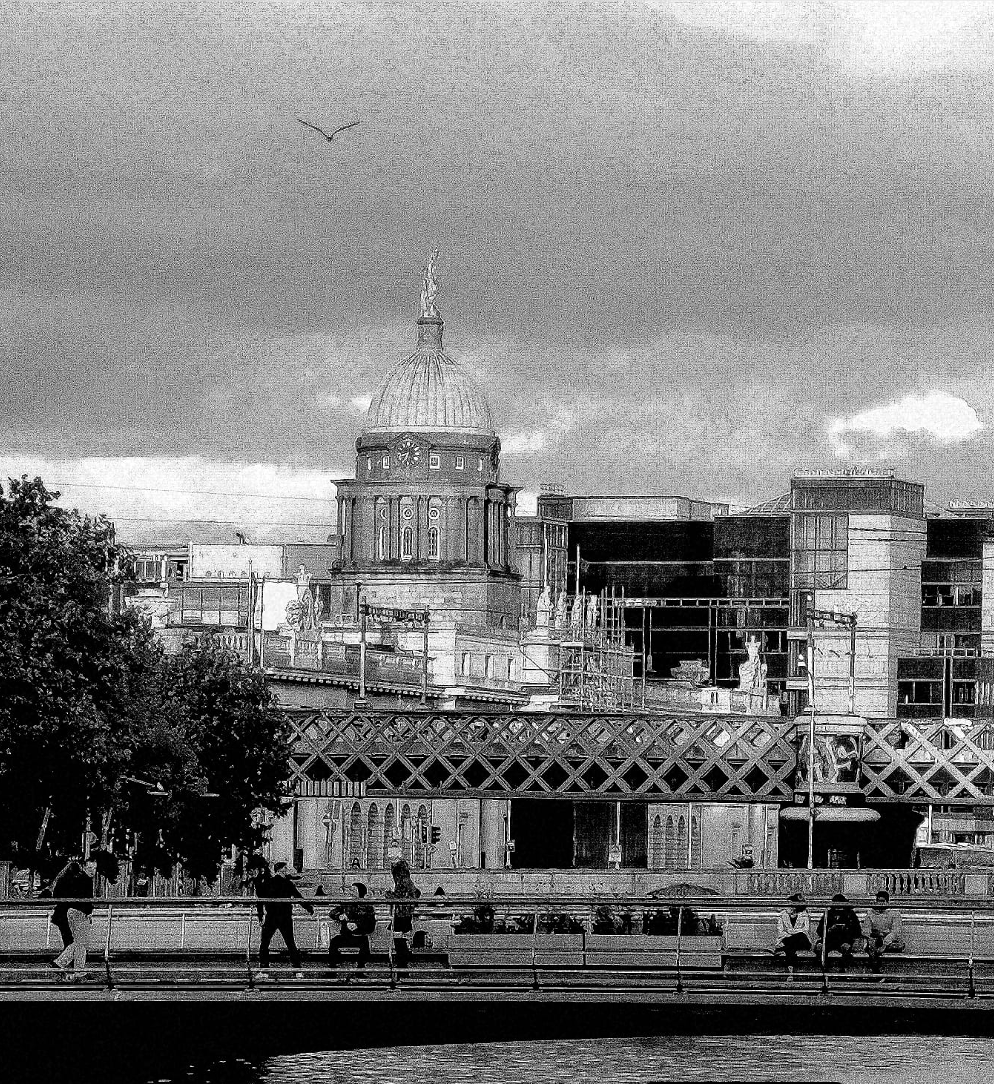Author: Lisa Ziegert
[Content Warning: Suicide Attempt]
Tomorrow, that’s all he told me.
Tomorrow, that’s when it will happen.
Tomorrow, that’s when he will do it.
Tomorrow, that’s when I will lose him.
I curse the night. I curse the rest. I curse myself for sleeping so long. All this makes me hate myself because right now, it is tomorrow.
He hasn’t said anything precise about when and where. He just texted me “Tomorrow” and knew I would understand perfectly. I know it is not a joke or a drunk text. It is a promise. Reading these eight letters hurts so bad, and I know he knows it.
We know each other so well. Some would say like brothers, but it would be wrong, and immoral. I don’t like him like a brother at all. I love him with all my heart and soul. I love him like the wind loves the sea.
This love consumes me. It is the reason why his text hurts so badly. I know he fought for so long. I know he tried to find another way. I tried to help him so much, but it was in vain. It is in vain because it’s too late. Tomorrow. Well, today is truer but I cannot accept it, so my very soul perceives it as tomorrow. I cannot accept it because tomorrow is the day he’s going to die, and it breaks me.
It sucks the air out of my body. I feel like I’m moving through a thick fog, like the air around me is solidifying. I struggle to move, to get dressed, to grab my car key, to get out of my place, in my car.
When my butt finally touches my car seat, feelings, emotions, everything comes back to me. I start shivering. I try to calm myself, but my hands won’t stop shaking. I can’t put the car key in the keyhole. I drop them on the floor. It makes me lose it. I start to hit the steering wheel with my palms, shouting in agony, tears streaming down my cheeks. I let my head go back against my seat and just stay here for a minute, drained, crying, weeping.
When I manage to calm myself, I pick up my keys and start my car. I drive in silence. The roads are empty, everybody is away, on holiday. It is way too hot; I am sweating. I should open the window or turn on the AC, but I do neither. I just keep driving further and further to my lover’s place.
I spend the entire drive muttering “Please be home! Please, oh please be home, my dear precious angel”. This sentence turns around and around in my head. His face is imprinted on my eyeballs.
At 4, I see his house. I stop in the middle of his driveway. Get out, run to his door, and bang my fists on it as if my life depended on it.
There is no answer.
I try to open the door, but it is locked. I run around the house to the backdoor and am very relieved to find it open. I burst into his kitchen and start shouting his name. I search all the rooms on this floor but can’t find him. I run up the stairs straight to his bedroom. But still, he’s nowhere to be seen. I get out of his bedroom and scan my surroundings. I rapidly observe that all the doors are open except the one from the bathroom. I rush to it and try to open it. It is locked. I bang on it with all my might shouting.
“Please my dear, please open the door. Let me in! Let me help you! I beg you!”
But there is no answer.
I continue to pour my rage and despair on that poor door.
I end up breaking it at some point and am finally able to enter the room.
It is 4:20. At first, I don’t see anything. There is only a strong metallic smell. The smell of blood. Then I see him. He is curled up on the floor, blood pouring from his arms. He is weakly looking at me. His eyes are full of pain, relief, regrets, and apologies. I run to him. I don’t know what to do, or how to help him. I’m completely lost, helpless. I grab random towels and try to tie them around his deep open wounds. It is not working, but I am no doctor. I do not know how to do the only thing I must do.
At 4:40, the idea of calling an ambulance crosses my mind. I shout to my phone to call it and do my best to explain to the nice lady that the love of my life is losing all his blood in my arms. I am crying, I can’t help it, can’t stop it. But I don’t care. The only thing I want is for him to survive.
When the paramedics arrive, they ask me to move aside so they can take care of him properly. I know I should not protest but I can’t help it. I don’t want to let go of him. I cannot lose him. He is too important, too wonderful, too irreplaceable.
Still, I let go of him, exit the bathroom, and pace up and down the corridor. They patch him, take him in an ambulance and drive straight to the nearest hospital. I jump in my car and follow as well as I can.
When I arrive, the only thing left for me to do is to wait in a big light blue room, filled with dark blue seats and smelling of sanitizer.
A nurse comes to me with a concerned look and asks me if I am hurt. It is only at this moment that I realize, I am covered in blood. I reassure her, telling her the blood is not mine. She smiles faintly and leaves me to wait, alone. I have never felt lonelier. I pace in this room for hours desperately waiting for anyone to give me some news.
At 10, a doctor finally comes to me. He looks exhausted. When he arrives next to me, he puts his arm on my shoulder. It alarms me. I don’t know if his face shows concern or relief. I am not ready to hear him tell me something bad. I am not ready to confront death.
“It was long and took a lot of time. The cuts were nasty, and he lost a ton of blood but he’s going to live. We’re leading him to his room as we speak. You will be able to see him soon. You did the right thing calling us, Sir, a few minutes later would have been too late.”
Relief washes over me. He is going to live. It’s all I needed to know, all I heard. I don’t feel like I saved him. I don’t feel particularly heroic. All I did was save the person I hold the closest to my heart. In a way, it is selfish, I guess, since he tried to kill himself. But no, I cannot let him do that. I love him too much.
I am in his hospital room, bent over his bed, waiting for him to wake up. When he opens his eyes, I take his hand in mine. I look at him with eyes full of love and gratitude.
“I’m so glad you are alive! You scared me so much! Please let me help you more. I’m sure I can try to do something else. Let me help you. I love you; you know?”
He looks at me with tears in his eyes. A faint smile appears on his face. He starts to speak slowly, in a very hushed voice.
“I am sorry. I could not take it anymore. I will try to talk to you and let you help me. I know you love me. So do I, even if what I tried to do would tend to make you think the opposite.”
These words console me. They bring me peace and hope for the future, our future. I lean a bit further and put a gentle kiss on his forehead.
“It’s going to get better. I don’t know when, but it is!”
Things are complicated now but we will get through this battle together. We will make it out alive. We are strong enough and our love is stronger than ever. Nearly losing someone really makes you realize how much you love them.
We are survivors. We will keep fighting against his depression, suicidal thoughts, and any other issues.
We are strong.
We are united.
We will see tomorrow.




